plastic waste
To develop an international legally binding instrument on plastic pollution, experts from around the globe will meet in Bangkok (Thailand) at the United Nations Conference Centre (UNCC) starting August 24.
The in-person meeting will be preceded by up to three virtual meetings per expert group, including a preparatory virtual meeting per group to facilitate logistics, planning and common understanding on organization of work and expected outcomes of the in-person meeting.
"Over the past three years, the global community has come together with the mission to end plastic pollution. We're now entering, the fifth and to be final negotiations in 2024," Bjorn Beeler, International Coordinator for IPEN (International Pollutants Elimination Network) said on August 13.
Bad precedent
Unlike at previous rounds of talk, the attendees will have to be part of a national delegation or chosen as one of two dozen invited technical experts.
In a series of letters to the United Nations Environment Programme, hundreds of civil society organizations said the action runs counter to the way international environmental treaties are usually made.
"In my 20 years of doing negotiations, you may have technical expert group where you limit the number of experts you bring into the group, but you've never really removed observers or civil society or public interest groups," Beeler explaineds.
INC Executive Secretary Jyoti Mathur-Filipp replied in a letter that she wasn’t authorized to let people in and there was no consensus on having observers participate.
U.N. documents aren't clear on the question.
Clock is ticking
"The meeting that's coming up in Bangkok is known as an intersessional. This is to be a technical expert meeting which is looking at two specific themes. They've had online calls before leading up to the discussion," Beeler said.
"Where there in Bangkok, they will have a discussion around chemicals of concern, criteria for how to identify those chemicals of concern and also look at recyclability. So that's the focus of one technical expert group. And the other technical expert group is to look at financing. Where could the funding come from to fund the development and implementation of a global agreement to end plastic pollution?"
In 2022, most of the world’s nations agreed to make the first legally-binding treaty on plastics pollution, including in the oceans. The goal was to complete negotiations by the end of 2024.
Thousands of environmentalists, plastic industry representatives, scientists, tribal leaders, waste pickers and others concerned about plastic pollution have traveled as observers to four continents to share their views at the treaty talks.
Plastics are derived from organic materials such as crude oil, natural gas,cellulose, coal and, in more recent years, from bio-matter.
Recent data from the United Nations Environment Programme report, ‘Turning off the Tap’, reveals that every year 430 million metric tonnes of plastic are produced.




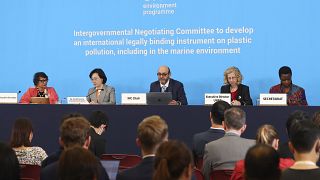
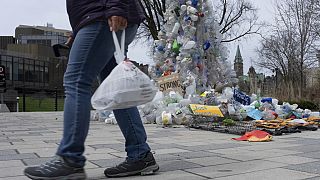
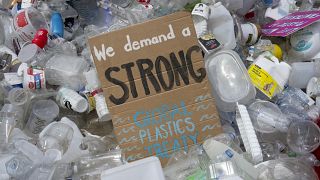




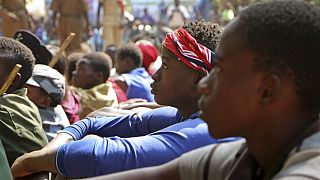
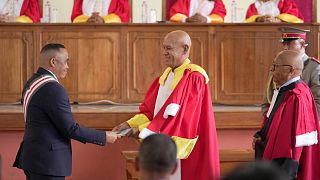
Go to video
UN warns: Global CO2 levels hit record high, fueling extreme weather
Go to video
Global shipping nations consider historic climate deal amid US opposition
02:32
Kenya project looks at impact of climate change on women's mental health
01:49
Former California governor Schwarzenegger stands with Vatican climate initiative
01:58
Kenyan engineer turns deadly water hyacinth into eco-friendly innovation
01:00
A sinkhole opens in Bangkok after road collapse during construction